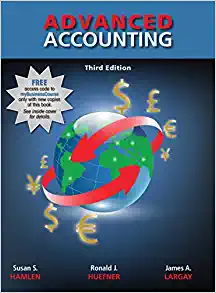Question
Can someone please help me answer the following question: J.P., a wealthy investment banker, purchased an office building and underlying land (the property) for $2
Can someone please help me answer the following question:
J.P., a wealthy investment banker, purchased an office building and underlying land (the property) for $2 million, borrowing the entire purchase price from the Last Texas Savings and Loan. The loan is nonrecourse, secured by the property, and constitutes qualified nonrecourse financingunder 465(b)(6). Principal and interest on the note are payable over 20 years. J.P. did not invest any of his own money and did not devote any of his time to managing the office building (he hired a management company to take care of the business).In the first year of operations, the results for J.P. are as follows:
Rental income $270, 000
Interest paid $210, 000
Operating expenses $50,000
Depreciation $60,000
In addition to the interest payment, J.P. made a $20,000 principal payment on the note. J.P. has $800,000 of salary income from his investment banking job and $80,000 of dividend income from the portfolio investments. J.P.s depreciation was not accelerated or otherwise subject to any recapture rules.
(a) List the primary authorities relied upon in answering parts b - d, below:
(b) To what extent may J.P. deduct his net $50,000 loss from the office building?
(c) On the first day of the second year, J.P. sold the property. Because the value of the property exactly equaled the $1,980,000 mortgage on the property, the buyer simply took the property subject to the mortgage, and J.P. received no other consideration. What are the tax consequences of the sale to J.P. in Year 2?
(d) Assume that instead of selling the property in the second year, J.P.receives in the second year $320,000 of rental income net all expenses except for interest and depreciation. J.P. pays $22,000 loan principal,$200,000 of interest on the loan, and depreciation is again $60,000. J.P.s salary and dividend income are the same as in the first year. What are the tax consequences of J.P.s investment in the property in Year 2?
Step by Step Solution
There are 3 Steps involved in it
Step: 1

Get Instant Access to Expert-Tailored Solutions
See step-by-step solutions with expert insights and AI powered tools for academic success
Step: 2

Step: 3

Ace Your Homework with AI
Get the answers you need in no time with our AI-driven, step-by-step assistance
Get Started


